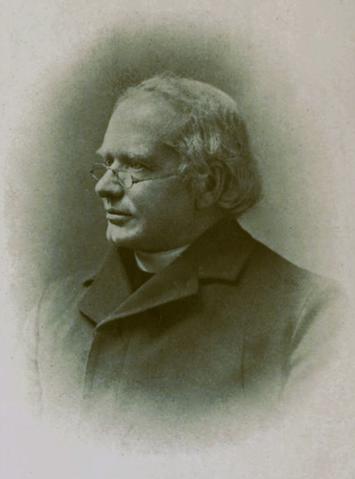
Zona de identificação
Tipo de entidade
Forma autorizada do nome
Forma(s) paralela(s) de nome
- Canon Peter O’Leary
Formas normalizadas do nome de acordo com outras regras
Outra(s) forma(s) de nome
identificadores para entidades coletivas
Área de descrição
Datas de existência
Histórico
Peadar Ó Laoghaire (Peter O’Leary) was born in Lios Carragáin near Macroom in County Cork on 30 April 1839. Born into a bilingual family, he was educated at St. Colman’s College in Fermoy before entering the seminary at St. Patrick’s College, Maynooth, County Kildare. He was ordained to the priesthood in 1867. He went on to serve in several parishes in the diocese of Cloyne, spending his final thirty years (from 1891) as parish priest of Castlelyons (Caisleán Ó Liatháin) in County Cork. From 1906 he was officially titled Canon Peter O’Leary, but he was more commonly addressed as ‘an tAthair Peadar’ (or ‘Father Peter’). Although he did not begin writing in earnest until he was in his fifties, the foundation of Conradh na Gaeilge (1893) spurred him on to take up a career as a writer. He was particularly eager to compile accessible Irish language reading material, especially for a younger generation. O’Leary completed nearly five hundred pieces of work including essays, stories, and translations of The Bible and ‘Don Quixote’, in addition to modernisations of early and medieval Irish texts. His best-known works are ‘Séadna’ (1904) and ‘Mo scéal féin’ (1915). ‘Séadna’, a folk tale, is considered a seminal work in the Gaelic revival, epitomizing O’Leary’s championing of ‘caint na ndaoine’ or the language of the people. His pioneering autobiographical work, ‘Mo Sgéal Féin’, was published by the Irish Book Company, founded by Norma Borthwick and Mairéad Ní Raghallaigh, with whom he was closely associated. O’Leary’s contribution to Irish language literature saw him honoured as a freeman of both Dublin and Cork, with Cork Corporation referring to him as ‘the greatest Irish writer of his age’ when granting him the freedom of the city in 1912. O’Leary died in Castlelyons, County Cork, on 21 March 1920 and was buried in the local cemetery.
Locais
Estado Legal
Funções, ocupações e atividades
Mandatos/fontes de autoridade
Estruturas internas/genealogia
Contexto geral
Área de relacionamentos
Área de pontos de acesso
Pontos de acesso - Assuntos
Pontos de acesso - Locais
Ocupações
Zona do controlo
Identificador de autoridade arquivística de documentos
Suportado por
Identificador da instituição
Regras ou convenções utilizadas
Estatuto
Nível de detalhe
Datas de criação, revisão ou eliminação
Línguas e escritas
Script(s)
Fontes
John A. Murphy, 'Peadar Ó Laoghaire' in the 'Dictionary of Irish Biography' https://www.dib.ie/biography/o-laoghaire-peadar-tathair-peadar-oleary-peter-a6390